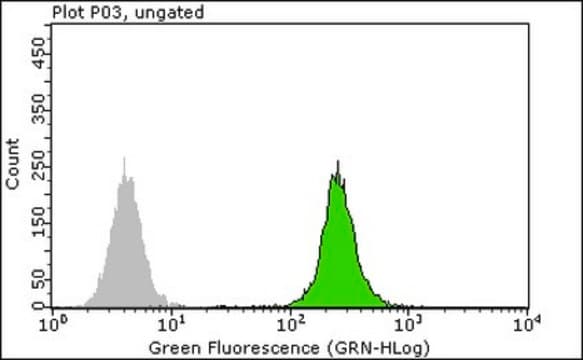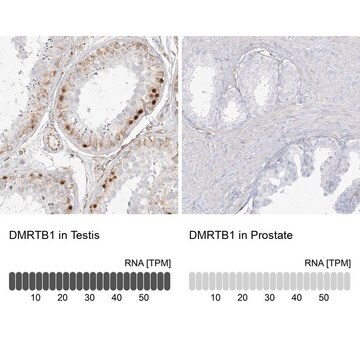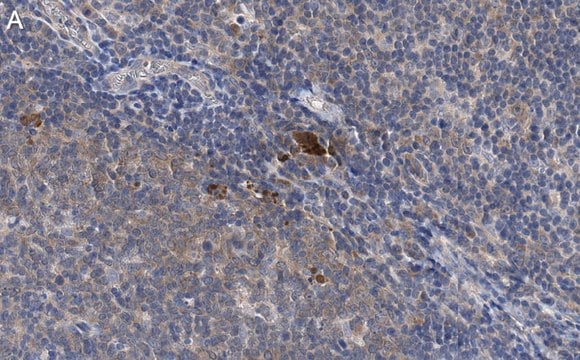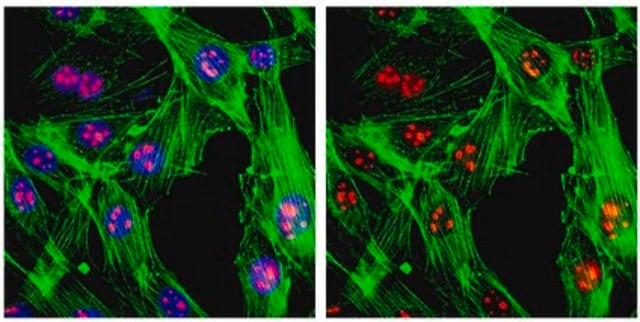04-1488
Anti-HIRA Antibody, clone WC119
clone WC119, from mouse
Synonym(s):
DiGeorge critical region gene 1, HIR (histone cell cycle regulation defective) homolog A (S. cerevisiae), HIR histone cell cycle regulation defective homolog A, HIR histone cell cycle regulation defective homolog A (S. cerevisiae), TUP1-like enhancer of
About This Item
Recommended Products
biological source
mouse
Quality Level
antibody form
purified immunoglobulin
antibody product type
primary antibodies
clone
WC119, monoclonal
species reactivity
mouse
species reactivity (predicted by homology)
human (based on 100% sequence homology)
technique(s)
immunoprecipitation (IP): suitable
western blot: suitable
isotype
IgG1κ
NCBI accession no.
UniProt accession no.
shipped in
wet ice
target post-translational modification
unmodified
Gene Information
human ... HIRA(7290)
General description
Specificity
Immunogen
Application
Epigenetics & Nuclear Function
Chromatin Biology
Chaperones
Quality
Western Blot Analysis: 0.44 µg/ml of this antibody detected HIRA on 10 µg of NIH/3T3 cell lysate.
Target description
Physical form
Storage and Stability
Analysis Note
NIH/3T3 cell lysate
Other Notes
Disclaimer
Not finding the right product?
Try our Product Selector Tool.
Storage Class Code
12 - Non Combustible Liquids
WGK
WGK 1
Flash Point(F)
Not applicable
Flash Point(C)
Not applicable
Certificates of Analysis (COA)
Search for Certificates of Analysis (COA) by entering the products Lot/Batch Number. Lot and Batch Numbers can be found on a product’s label following the words ‘Lot’ or ‘Batch’.
Already Own This Product?
Find documentation for the products that you have recently purchased in the Document Library.
Our team of scientists has experience in all areas of research including Life Science, Material Science, Chemical Synthesis, Chromatography, Analytical and many others.
Contact Technical Service








